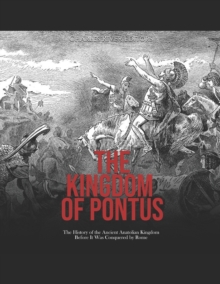Rome faced many formidable enemies over the course of nearly 1,000 years, but perhaps none were as enigmatic and forgotten as King Mithridates VI of Pontus. Despite numerous ancient sources detailing the life of the foreign monarch and his wars with Rome, and despite being an interesting character who endured years as a fugitive in his youth, enjoyed a fascination with poisons, and held mercy and pragmatic ruthlessness in a delicate balance, very few scholarly books and works have been produced about the king. It may be that his largely unsuccessful military campaigns have contributed to his disappearance from active historical examination, but despite his poor record in engagements against the Romans, the Kingdom of Pontus dominated much of Asia Minor in the 1st century BCE, and the Romans themselves considered the kingdom one of its most dangerous enemies. According to Plutarch, when Mithridates died, the Roman soldiers felt that "in the person of Mithridates ten thousand enemies had died." By then, it had required three of Rome's most famous generals - Sulla, Lucullus, and Pompey - to finally subdue his kingdom.
Mithridates was an interesting character, and the Kingdom of Pontus itself was no less interesting. Rising among the ruins of the Achaemenid Empire and in the face of the advance of Hellenism spread by Alexander the Great and his successors, the Kingdom of Pontus found itself in a relatively remote location among various powers, including the empires carved out of Alexander's by the Diadochi and eventually Rome itself. The Kingdom of Pontus existed for more than 200 years, and during that time it expanded from a somewhat small entity into a legitimate empire that encompassed most of the Black Sea basin.
Given that expansion, it should come as little surprise that the kings of Pontus were astute politicians who cleverly maneuvered through the often treacherous world of ancient geopolitics. The early Pontic kings found themselves in the midst of the Diadochi Wars, quickly learning that the survival of their kingdom depended upon which Macedonian general to support and which ones to oppose. For the most part, the kings chose wisely and were able to not only stay independent but also to expand their kingdom's borders. Somewhat fittingly, as the Pontic kings battled their neighbors for control of the Black Sea basin, they promoted a culture that grafted Greek, Persian, and local Anatolian traditions into a unique identity.
The Kingdom of Pontus' power and prestige grew until it caught the attention of the Romans, whose upward trajectory coincided with Pontus' in many ways. The two powers both began expanding their physical borders around the same time, and both later went through internal changes and evolutions before becoming the states for which they are remembered. Ultimately, in the 1st century BCE, there could be only one major power in the Mediterranean and Near East, so Rome and Pontus were destined to clash. Rome would eventually win the conflict after several attempts, and though the Kingdom of Pontus disappeared in the 60s BCE, it left an indelible mark on the political, cultural, and economic history of the ancient Mediterranean and Near East.

